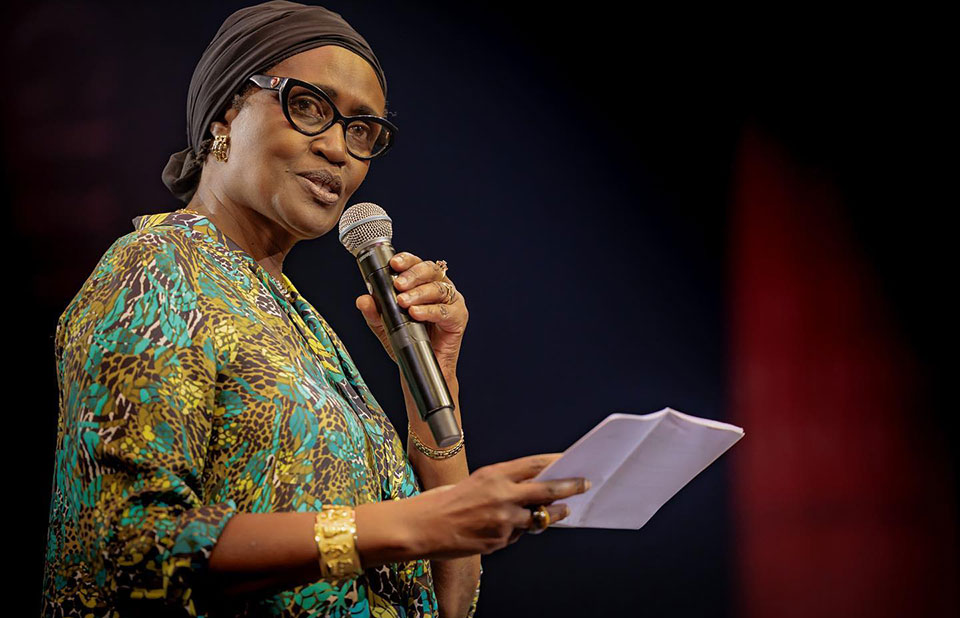Faith Leaders Urged to Amplify Global AIDS Response at Vatican Gathering

By Baboloki Semele
VATICAN CITY, ROME – In an urgent call for global solidarity, Winnie Byanyima, the Executive Director of UNAIDS, convened with Catholic leaders today at the Vatican, rallying faith communities worldwide to raise their voices in defense of the fight against HIV and AIDS. Byanyima’s message to the Catholic Church was unequivocal: the survival of millions is at stake, and faith leaders must once again stand at the forefront of this critical battle.
Speaking in Vatican City, Byanyima addressed the unfolding crisis triggered by recent changes to the U.S. government’s HIV relief program. She began by highlighting the devastating pause of the world’s largest AIDS relief initiative, which has provided life-saving treatment to 20 million people living with HIV. With the support of the U.S. government now uncertain, Byanyima painted a dire picture of the future. Without the restoration of vital funding, she warned, the world risks losing decades of progress in the fight against AIDS. According to UNAIDS projections, within just four years, 6.3 million people will die from AIDS-related illnesses, and 8.9 million people will acquire HIV.
The consequences are especially tragic for newborns: as many as 370,000 babies could acquire HIV, and without immediate access to treatment, half of these infants will not survive to see their second birthday. The pandemic, which has already devastated many communities across Africa, Asia, and Latin America, could soon return to pandemic proportions, unless urgent action is taken.
“Human life is sacred—and today, it hangs in the balance,” Byanyima stressed. She recalled how the Catholic Church was instrumental during the early days of the AIDS crisis, when churches across the globe stepped up to care for the sick and dying in the face of widespread neglect. This historic intervention, Byanyima said, must be mirrored once again in response to the current threat.
Faith, according to the UNAIDS Executive Director, has a unique and powerful role to play. “The church has a powerful voice that reaches into communities around the world,” she declared. “We need the voice of faith and the leadership of faith in the world that we are in today–this time to defend the global AIDS response and lifesaving programmes like PEPFAR.” PEPFAR, the U.S. government’s global initiative to combat HIV/AIDS, has been a cornerstone of the global HIV response for nearly two decades. Byanyima emphasized that the failure to restore its funding would not only jeopardize lives but would unravel the progress that has been made.
But despite the grim outlook, Byanyima was quick to highlight a glimmer of hope. 2024 brought a breakthrough in HIV treatment with the announcement by Gilead Sciences of a new injectable medicine, lenacapavir, which can prevent HIV with just two injections per year. If made accessible and affordable to all who need it, Byanyima said, this innovation could become a game-changer in the fight against the virus and bring the world closer to ending the AIDS pandemic once and for all.
“Humanity has made incredible progress tackling AIDS. But let me be clear,” Byanyima asserted. “Without funding for the HIV response, we risk losing all we have gained and could see a resurgent AIDS pandemic.” She called for a concerted effort from national governments to address the financing gap and ensure sustainable support for the global HIV response. UNAIDS estimates that an additional US$ 29.3 billion is required by 2030 to bring countries back on track to ending AIDS as a public health threat.
In addition to securing international funding, Byanyima highlighted the need for low- and middle-income countries to bolster domestic funding for HIV programs. Addressing issues like proper taxation and relieving the burden of crippling debt are vital steps in ensuring a more sustainable and equitable response to the epidemic.
While the U.S. government’s pause on funding has undoubtedly left a gap in the global response, UNAIDS remains committed to partnering with other international donors, governments, and organizations to ensure a robust and sustainable AIDS response. “UNAIDS is working tirelessly to document and assess the impact of recent U.S. shifts on the global HIV response,” Byanyima said. “We will continue to advocate for the restoration of this crucial funding and work with all stakeholders to protect the lives of millions at risk.”
As the world faces the possibility of a resurgent AIDS crisis, Byanyima’s message to the Vatican’s faith leaders was clear: this is a time for action, not indifference. With the stakes higher than ever, the global community, with faith leaders at the helm, must come together to prevent a catastrophic setback in the fight against HIV/AIDS.
The UNAIDS mission is resolute: to end AIDS as a public health threat by 2030. However, with growing uncertainties surrounding critical funding, the fate of millions living with HIV may well depend on the advocacy and leadership of global faith communities.





